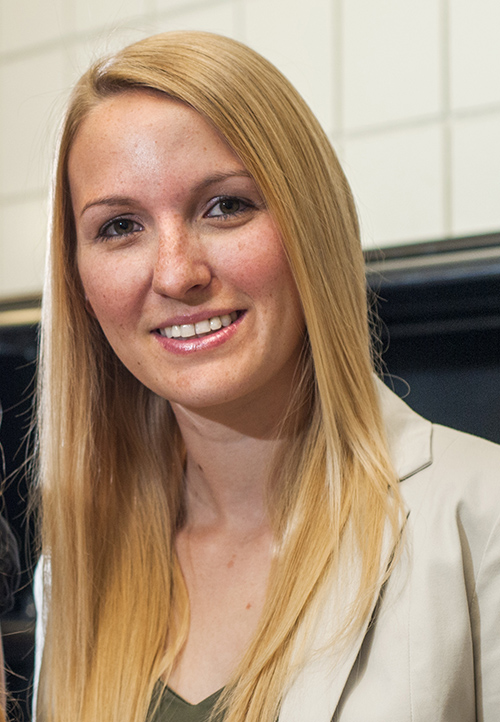A University of Arkansas doctoral student's research suggests college students perceive they can assess whether someone would consent to sexual activity by looking at a person's social media profile. Kelley Rhoads said this is problematic because sexual consent should be a negotiation that occurs between the individuals engaging in sexual activity. These perceptions based on social media could lead to preconceived notions, which can quickly turn into negative consequences, she said.
Rhoads is a doctoral student who conducts research as a member of the Sexual Health Research Lab in the College of Education and Health Professions. Rhoads gave a presentation Feb. 6 about her research into whether college students perceive they can determine sexual consent from looking at a person's social media profile. The presentation was titled "Shirtless Selfies for Guys, Scantily Clad Girls: Assessments of Sexual Consent Based on Social Media Profiles" and was part of the Department of Health, Human Performance and Recreation Research Seminar Series.
Rhoads surveyed more than 200 U of A students and asked them a series of open and closed-ended questions. Two of the questions asked the same thing, except one question used the word "consent" while the other used the definition of consent. This was to see whether responses would vary based on whether people view the word "consent" as a buzzword, because it is often associated with sexual assault.
The results suggest this assumption to be accurate. Sixty-eight percent of those surveyed answered yes to perceiving they can figure out whether someone would be willing to engage in sexual activity based on their social media profiles, while only 48 percent said yes when the same question was asked, but the word "consent" was used instead of the definition of consent.
Participants said they use pictures, posts and appearance as the main factors in figuring out whether they think someone would consent. More specifically, students said sexual pictures, sexual posts, and clothing were indicated as characteristics of a social media profile that would suggest sexual consent; whereas, posts containing religious content or overly modest pictures indicated someone would not consent to sexual activity.
Through her research, Rhoads found gender to be a large theme. The questions asked were all gender-neutral, but many participants' responses were gendered with more than half targeting women's social media profiles, and only a few men's. This finding goes hand-in-hand with the sexual double standard that women are held to more modest standards regarding their sexuality as compared to men. For example, if a female posts a picture in a swimsuit, she will be judged, but if a male posts a picture in a swimsuit, no judgment is passed.
To stop this issue before it becomes a bigger problem, Rhoads recommended that sexual assault prevention education programs need to add a social media component to avoid unfortunate outcomes.
For more information, contact Kristen Jozkowski at kjozkows@uark.edu.
Topics
Contacts
Heidi Wells, director of communications
College of Education and Health Professions
479-575-3138, heidisw@uark.edu
Riley DePaola, communications intern
College of Education and Health Professions
479-575-3138, rbdepaol@uark.edu
